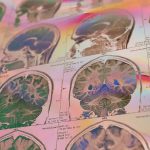In recent years, a steady wave of positive press around the promise of psychedelics for mental health has fueled an unprecedented level of hype and expectations around these substances. However, on the heels of the FDA’s rejection of MDMA therapy in August, media scrutiny has also increased around the field of psychedelic research, with increased attention on whether some of the clinical trials’ designs have been flawed, leading to researchers overestimating the efficacy of psychedelics compared to standard antidepressants.
This month, a group of scientists in Taiwan have tackled one of the longstanding challenges facing psychedelic researchers. In many psychedelic trials participants are often able to guess whether they received a psychedelic drug or a placebo due to the profound subjective effects of psychedelics. This issue is called functional unblinding and was one of the many concerns that the FDA advisory panel raised when it rejected Lykos’ application for MDMA as a treatment for PTSD. The problem with functional unblinding is that it may lead to a high placebo effect in those who received the drug and a low placebo effect in the control group. This in turn results in the overestimation of the psychedelic treatment’s efficacy.
The researchers in Taiwan tried to assess the true effectiveness of psychedelics versus the antidepressant escitalopram (also known as “Lexapro”) by conducting a systematic review and meta-analysis of studies in numerous databases where participants ingested MDMA, ayahuasca, as well as low-dose and high-dose psilocybin. Critically, they separated the placebo responses for anti-depressants and psychedelic drugs while making their analyses.
READ: Where Is the Psychedelic Movement Headed Next?
Their comparisons found that only high-dose psilocybin was more likely to be more effective than the antidepressant escitalopram (Lexapro) at 10 or 20mg. For patients with major depressive disorder, escitalopram, ayahuasca, and high-dose psilocybin were also all more effective than placebos. The researchers noted that psilocybin was usually administered with psychotherapy; therefore, the greater effectiveness of psilocybin can also be attributed to this psychological support. However, high doses of psilocybin were also more effective than extremely low doses of psilocybin, which indicates that the effectiveness of the drug cannot be attributed only to the addition of psychotherapy.
The researchers also acknowledged several limitations: first, they only looked at the short-term and acute effects, and the longer-term effects of psychedelics and antidepressants remain unclear. Second, the participants in the MDMA clinical trials were predominantly diagnosed with PTSD, not depression. The sample sizes were also small —overall, 811 people were included in the psychedelic trials, and 1,1968 people were included in the escitalopram trials. Regardless, the study is a step in the right direction for cutting through the hype and understanding how these treatments stack up against each other.
DoubleBlind is a trusted resource for news, evidence-based education, and reporting on psychedelics. We work with leading medical professionals, scientific researchers, journalists, mycologists, indigenous stewards, and cultural pioneers. Read about our editorial policy and fact-checking process here.
DoubleBlind Magazine does not encourage or condone any illegal activities, including but not limited to the use of illegal substances. We do not provide mental health, clinical, or medical services. We are not a substitute for medical, psychological, or psychiatric diagnosis, treatment, or advice. If you are in a crisis or if you or any other person may be in danger or experiencing a mental health emergency, immediately call 911 or your local emergency resources. If you are considering suicide, please call 988 to connect with the National Suicide Prevention Lifeline.
DoubleBlind Mag Read More



